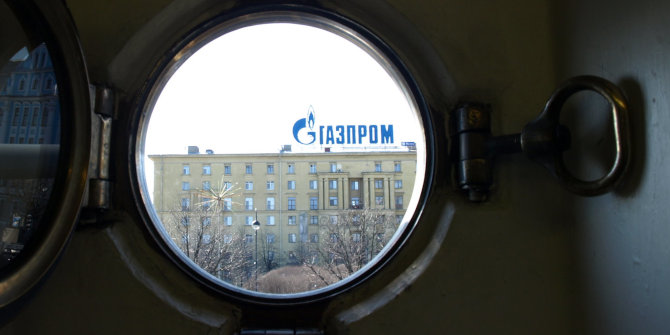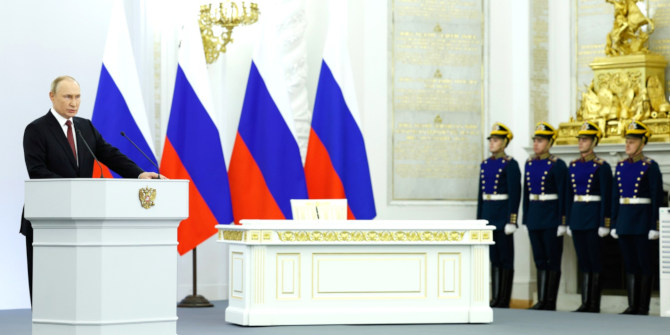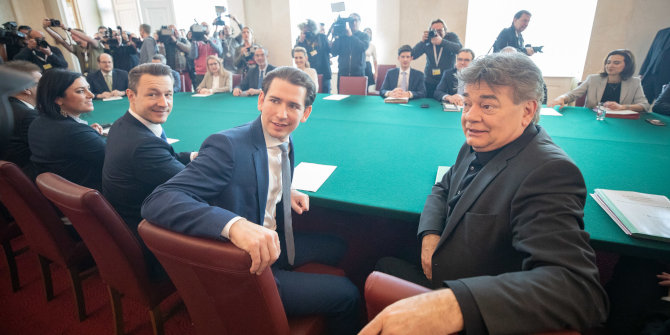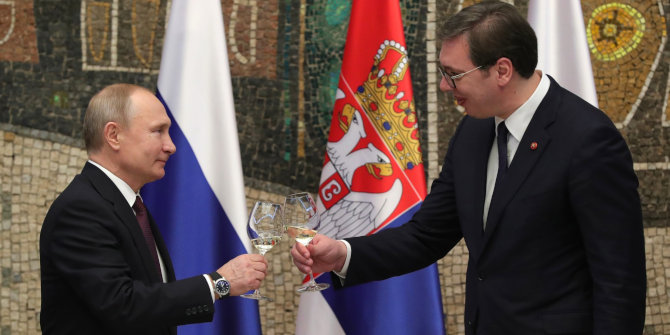
 Since the beginning of European integration, EU member states have been reluctant to share competences over their external energy relations. Against this backdrop, the new requirement to have bilateral energy agreements assessed by the Commission implies a surprising expansion of supranational powers in energy diplomacy. Philipp Thaler and Vija Pakalkaite take a closer look at this development and find that it is closely linked to a novel instrument for compliance governance. As peculiar as this case may seem at first sight, the underlying procedural expansion of supranational governance capacity may play a growing role in future chapters of European integration.
Since the beginning of European integration, EU member states have been reluctant to share competences over their external energy relations. Against this backdrop, the new requirement to have bilateral energy agreements assessed by the Commission implies a surprising expansion of supranational powers in energy diplomacy. Philipp Thaler and Vija Pakalkaite take a closer look at this development and find that it is closely linked to a novel instrument for compliance governance. As peculiar as this case may seem at first sight, the underlying procedural expansion of supranational governance capacity may play a growing role in future chapters of European integration.
European integration in energy policy has been shaped by two opposing forces. While the European Commission has advocated a stronger supranational role since the second half of the 1990s, member states have generally remained critical of such a development. This stance is particularly evident in external energy policy, as they see security of energy supply as of vital importance to national security. Member states’ reluctance to share competences in this field with Brussels is prominently embodied in the Lisbon Treaty. It specifies EU members’ right to decide about their energy mix (i.e. the sources of domestic energy consumption) and their supply structure (i.e. the origin of energy supplies). This implies that EU members retain the competence to have their own energy diplomacy and to conclude international agreements with suppliers.
Despite strong national preferences and weak EU policy-making capacities, EU external energy policy has recently experienced an integrative push. Against all odds, new supranational competences to review member states’ Intergovernmental Agreements (IGAs) in the field of energy have provided the Commission with significant influence in energy diplomacy. How was this possible? In a recent study we argue that a combination of internal market pressures and a novel supranational compliance instrument (which we call ‘real-time compliance’) facilitated this development.
Supranational assistance in bilateral energy negotiations
In 2010, the Polish gas supplier PGNiG and Russian state-owned Gazprom negotiated over the transit and extension of Russian gas supplies to Poland and the EU. In the same year, Lithuania implemented an internal market law that required unbundling of its domestic gas transmission system operator, of which Gazprom was a majority shareholder. In both cases, Gazprom was concerned that a full application of EU internal market legislation would challenge its business model as a vertically integrated company. It therefore exerted significant pressure on the two EU members to conclude bilateral agreements that allowed it to continue its business practices in the EU.

Credit: Nomdefinitivo (CC BY-NC-SA 2.0)
In the course of their negotiations with Gazprom, both Poland and Lithuania turned to the Commission. They hoped for supranational assistance in dealing with Gazprom, which implicitly threatened to link its demands to price concessions on gas deliveries. Moreover, they were worried that an agreement reflecting Gazprom’s interests could violate EU internal market provisions. The Commission’s participation in the negotiations changed these dynamics. Its input ensured compliance of the agreements with EU law, strengthened the positions of Poland and Lithuania, and facilitated a favourable outcome for both (with implications until today, as emphasised by a recent court ruling). Overall, these experiences showcased the benefits of supranational involvement in member states’ external energy relations.
Internal market pressures call for a supranational role
The right to participate in member states’ bilateral energy negotiations with third countries had been on the Commission’s wish list for a while. In 2011 it initiated legislation in this respect, arguing that member states’ energy IGAs could undermine the Union’s security of supply and functioning of the internal energy market. Yet, at the time, member states proved unwilling to place their negotiations with external suppliers under supranational oversight and agreed to share the content of energy IGAs only after conclusion (Decision 994/2012/EU).
This arrangement turned out to have potential for a legal dilemma. Once signed under international law, IGAs between an EU member and a third country could not easily be undone or changed, even if in breach of EU law. An infringement procedure, the main legal instrument to enforce compliance after a breach of EU law, therefore proved to be a suboptimal solution to deal with IGAs and additional strategies appeared essential to prevent rule violation in the first place. It was in this context that the Polish and Lithuanian cases became precedents that offered a solution. The Commission’s participation enabled it to continuously review the negotiation content and assess its compliance with EU law.
The following years proved the Commission’s concerns right. Decision 994/2012/EU did not adequately address the identified problems. The prime example was the South Stream pipeline project, for which six EU members had signed IGAs with Russia that undermined EU energy market rules. Lacking unilateral termination clauses, the Commission’s request for renegotiation was not enforceable. Eventually only Moscow’s withdrawal from the project avoided a conflict of EU and international law. Overall, these experiences revealed the growing pressures that a stronger role of the Commission in member states’ external energy affairs was necessary to ensure the integrity of the internal energy market.
‘Real-time compliance’ as a new instrument of supranational governance
A 2017 revision of the existing legislation sought to address the shortcomings [Decision (EU) 2017/684]. As the main innovation, it introduced mandatory Commission assessments of IGA draft versions with regards to their compliance with EU law. Only following supranational approval could these IGAs be formally concluded. A second Commission request, the right to unilaterally enter negotiations, was denied by the member states. Still, negotiation constellations likely promote supranational participation. This is because third countries may pressure their EU counterparts to invite the Commission to the negotiation table and comment on the draft IGA, rather than having to await the results of the supranational assessment.
These innovations increase supranational governance powers over member states’ external energy relations for two reasons: first, the Commission can carry out its compliance assessment in ‘real-time’, thus impacting on negotiation dynamics. Secondly, the right of judicial interpretation, usually reserved to the CJEU, de facto shifts to the Commission. The result is a strengthening of executive powers with a prerogative of the judiciary.
The broader implications for European integration
European external energy policy has become supranationalised despite member state concerns over sovereignty. We demonstrate that this development is linked to the institutionalisation of a novel instrument – ‘real-time compliance’ – that strengthens supranational oversight in energy diplomacy. What can our study tell us about European integration?
The Commission’s central role in gaining supranational governance capacities contrasts with views that member states define the pace of European integration. The kind of supranationalism we observe is rooted in a procedural expansion of instruments for compliance governance – rather than a legalised expansion of supranational competences through Treaty change. Particularly in times of resurging nationalism and opposition to transfer of competences to Brussels, this approach to new supranational governance authority may well play a key role in future integration. In this respect, EU scholars (and policymakers) may find it worth paying increased attention to changes of the supranational governance toolbox – even though they appear minor at first sight.
For more information, see the authors’ accompanying article in the Journal of European Public Policy
Please read our comments policy before commenting.
Note: This article gives the views of the authors, not the position of EUROPP – European Politics and Policy or the London School of Economics.
_________________________________
 Philipp Thaler – University of St. Gallen
Philipp Thaler – University of St. Gallen
Philipp Thaler is an Assistant Professor for Energy Governance at the Institute of Political Science of the University of St. Gallen, Switzerland.
–
 Vija Pakalkaite – ICIS
Vija Pakalkaite – ICIS
Vija Pakalkaite is an Analyst for Power and the EU Emissions Trading System at ICIS in Karlsruhe, Germany.





